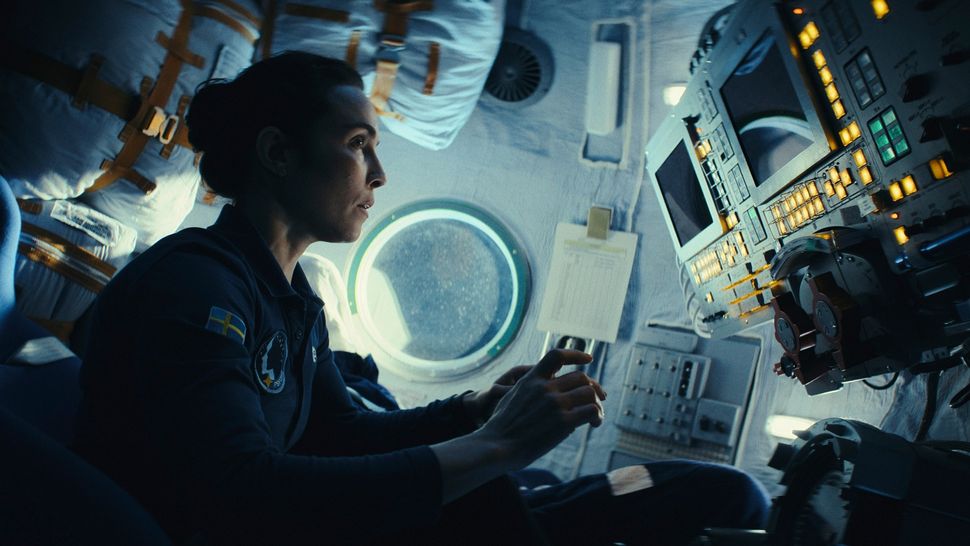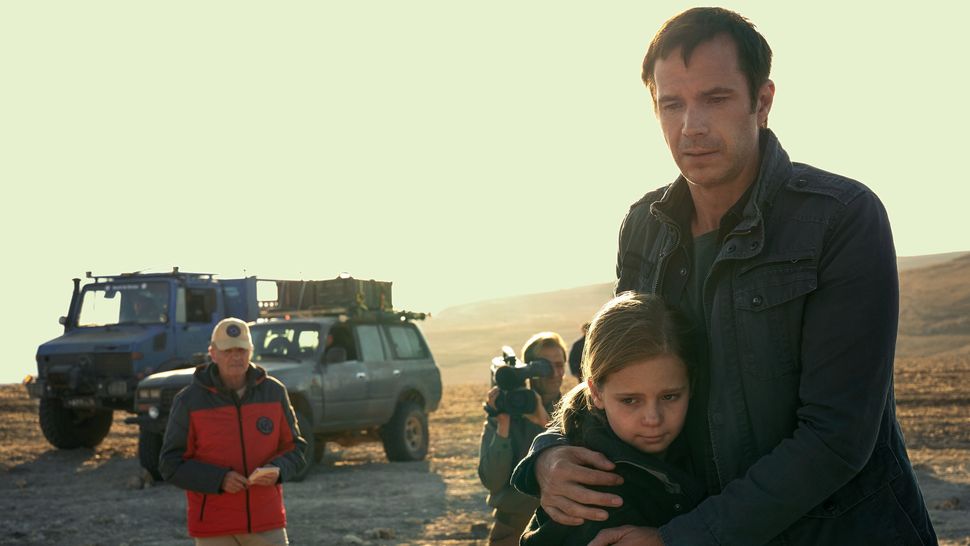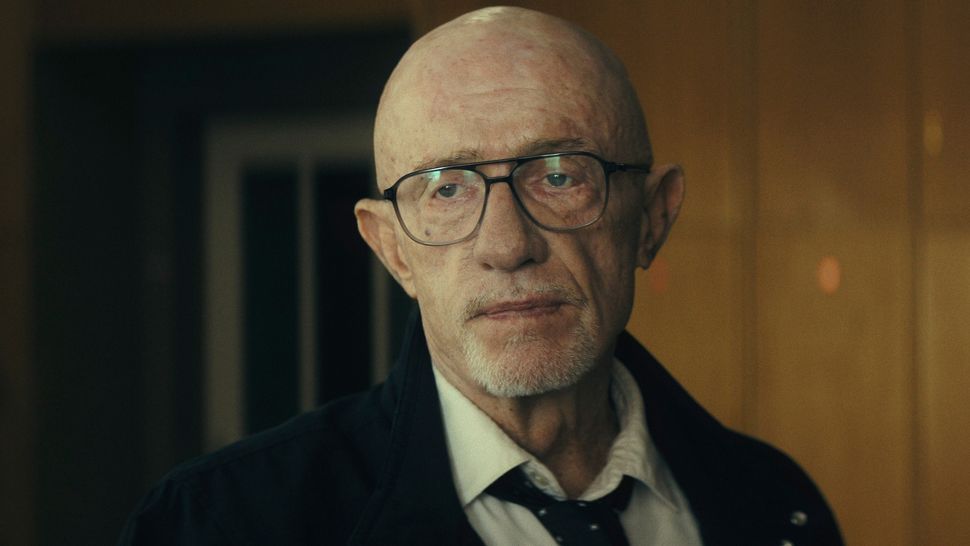
‘Constellation’ episodes 1-3 review: A well-made thriller that may be revealing its cards too soon (Image Credit: Space.com)
It’s not every week that we receive a new, big-budget sci-fi show from Apple, so that alone is worth celebrating after watching “Constellation“‘s three-episode premiere. Thankfully, Peter Harness’ (BBC’s “The War of the Worlds”) new series is also a pretty enjoyable ride so far.
From the get-go, it’s abundantly clear that Apple and the production companies have put a lot of money into this one. The first two episodes, which feel like a more logical first-week drop, shine bright thanks to Michelle MacLaren’s (“Games of Thrones”) sharp direction and knack for mixing well-staged spectacle with believable intimate moments. The third of the bunch, directed by Oliver Hirschbiegel (“Downfall”) feels more mundane for story reasons, but that’s the point, since the plot starts to unravel in intriguing ways, though perhaps too rapidly.
“Constellation” is just the tip of the iceberg when it comes to exciting sci-fi shows and movies coming in 2024 to streaming. The second season of “Halo” has been a fun ride so far, and “Star Wars: The Acolyte” promises to dive deep into the dark side of the Force. But first, don’t miss the Adam Sandler-led, trippy space movie titled “Spaceman” on Netflix next month.
Spoilers ahead for “Constellation” season 1 episodes 1, 2, & 3

It’s hard not to fall prey to “Constellation”‘s strengths early on, as the script gets us quick to the inciting incident aboard the International Space Station, which may or may not have happened due to a cutting-edge experiment going maybe too right. It’s only later that viewers will start to notice the show might not have enough mystery left in it to fill out eight episodes.
Former NASA astronaut and Nobel Prize-winning scientist Henry Caldera (Jonathan Banks) is running an experiment from Earth that aims to find and create a new state of matter which can only exist in zero gravity. Things go awry as soon as Commander Paul Lancaster (William Catlett) turns on the machine and seemingly achieves their target. It’s reasonable to think the experiment is responsible for the ISS suddenly going haywire and depressurizing, yet we soon learn a mysterious object hit the station.
Jo Ericsson (Noomi Rapace), who’s been tasked with studying how living in outer space affects humans’ mental state and behavior, ironically starts to suffer a mental breakdown and hallucinating (or is she?) shortly after the station is damaged. We know this from the very beginning, as the script decides to jump back and forth between the present and the future, where she appears to be on the run from authorities along with her daughter and the results of the experiment in the middle of the Swedish countryside.

The first two episodes make it very clear that something is wrong after Jo’s return to Earth, which is spoiled as soon as the premiere starts. You’d think this would rob the action in outer space of tension, but that’s not the case. It’s still intriguing to see how Jo fights several technological and mechanical setbacks in order to get back to Earth after the rest of the surviving ISS crew leaves in one of the two capsules available.
The first 100 minutes or so of the show feel like a pretty compelling riff on “Gravity” and “The Martian,” with Jo desperately going through the motions and protocols needed to get her return right, all while everyone on Earth races against the clock to help her. Its more unique voice, however, comes from the fact she starts seeing and hearing things that are hard to explain early on. We get plenty of that in the future-set scenes, but the ISS soon feels ‘haunted’ as well, starting with a U.S.S.R.-era, dead cosmonaut which could be the object that impacted against the station.
Rapace is no stranger to wild sci-fi rides and perilous space journeys, as she was, by far, the most compelling element of the divisive Alien prequel “Prometheus” (2012). Apple’s series gives her far more space to flex her acting muscles, and the much longer runtime isn’t the only reason. “Constellation” feels like a show of two halves (so far) even after Jo returns to Earth, with a family drama at the center of a web of paranoia and potential conspiracies.
There’s a lot of science talk, and it’s amazing to see one of these ‘prestige’ series taking the time to pay attention to smaller details and the rigid processes surrounding space operations. Above everything, “Constellation” hits the right notes as a paranoid thriller that has you questioning what’s real by regularly switching the audience’s point of view.
Even beyond the non-linear narration, you can tell that the writers are toying with the audience, making it challenging but enjoyable for a viewer to keep up.

There’s a sound logic to focusing on Jo’s experiences in the opening episodes, only to open up the scope in the third, when Jonathan Banks slowly takes over the main plot and delivers a dual performance with a ton of potential moving forward. The series doesn’t seem especially concerned with ‘hiding’ the mechanics of what’s actually going, which would be fine if more than one objective had been laid on the table. Mind you, we’re only three episodes in, but with episode three being as subtle as a sledgehammer to the face and a plot that seems to have played its best cards early, we’re left wondering whether this entire thing has legs.
A potential secret weapon is the aforementioned family drama. This already hints at Jo and her husband Magnus (James D’Arcy) having major marriage issues before she left Earth, and her daughter Alice (Rosie Coleman) feeling as confused by the post-accident, reality-bending effects as herself.
There’s also the matter of bureaucracy and hidden interests (Russian, American, and whatnot) surrounding the experiment as well as the resulting ISS accident. This could introduce much-needed twists and action to what’s otherwise looking like an Earth-bound psychological thriller and drama that’s equal parts effective and self-limited.
Undoubtedly, “Constellation” is a well-shot and often unsettling series, although the cast and presentation alone could carry this one to the finish line. Yet, it’s gonna need to add more sauce to the mix in the coming weeks to stay relevant in the mainstream conversation and our memory.





